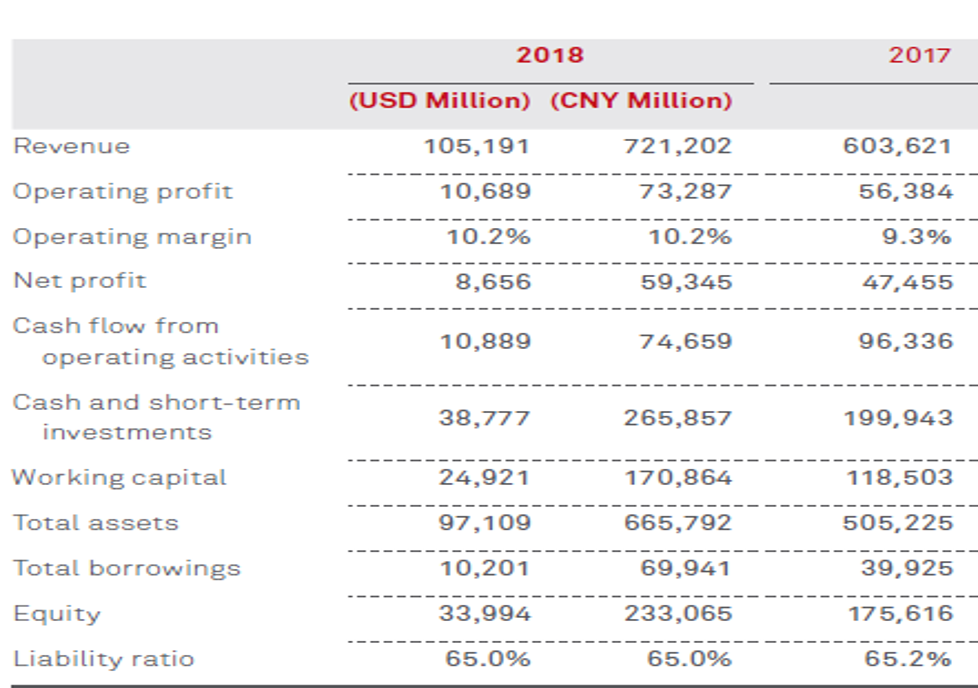The availability of telecoms infrastructure allows communication in the form of voice or data to be shared across the world, which is made possible by the telecom services providers. The telecom industry serves as the backbone of economic and social activity in the UK or any nation across the globe.
Chinese telecommunications group, Huawei for its fifth-generation telecommunication (5G) network is all set to get approval in the United Kingdom, albeit at a limited capacity. According to some media reports, the British government is looking forward to putting a cap on the market share of China's Huawei Technologies Co Ltd in developing its 5G telecoms network. The British government was feeling the pressure exerted from Washington, specifically from President Donald Trump for banning the Chinese telecom major. The US government believes that Huawei is involved in sharing classified information and intelligence, which can be a potential security threat for the country.
To reduce the reliance on the Chinese telecom group, the British government has come out with this move which shall also bring other network suppliers in the market and make the industry more competitive. As of now, options for the British government are limited as far as the number of service providers are concerned; hence no final decision has been taken. The intelligence agencies of the United Kingdom have hinted that any potential threats to the nation can be managed, provided the role of Huawei is restricted to ânon-core servicesâ. The British government has also asked the US, if they can provide them with alternative technology.
The National Security Council in the UK has two options to consider: either it can ban Huawei operations completely as demanded by the US President, or the company can be allowed to operate with non-core services with a restricted market share.
The core equipment and services in a telecom network are the main source of processing customer information, which can be compromised and pose a threat to security. However, the Non-core equipment and services refer to the base stations and antennas installed on rooftops and masts, Â which are far less vulnerable.
Now the restriction on a telecom group can be imposed in the manner as to there is a limit to the use of equipment in a specific area or region. These telecom entities typically operate their network in clusters with equipment being procured from multiple vendors. This implies that the same equipment can be used by multiple network providers operating in the UK market.
This new restriction would lead to install new equipment of Ericsson, Nokia or Samsung instead of Huawei, which would result in increased cost for the industry in launching 5G services. Huawei can still operate but in a defined space. However, Huawei, on its part, has always projected itself as a private entity with zero interference from the Chinese government. Though, a final decision awaited from the NSC (National Security Council) on Huaweiâs future role in the United Kingdom.
About Huawei
Incepted in 1987, the Chinese telecom group, Huawei is one of the top ICT (information and communications technology) solutions supplier. The company aims for digital inclusion for every entity to make a better-connected world. The company has a representative base of more than 185 thousand employees with a presence in more than 170 nations and serving three billion-plus people across the globe. The company is a private entity, wholly owned by its employees as the company runs an Employee Shareholding Scheme. The company has no shareholding from government or from any other government entity.
The company works with all its stakeholders across the value chain across the world to make advancements in technology and grow the industry while cultivating a broader ecosystem. The company provides the secure and innovative network infrastructure to telecom carriers along with cloud services. The company has an impressive track record of building 1,500 networks in more than 170 nations with network security as its top priority.
Huawei is known for its leading 5G innovation and commercial deployment. It started researching 5G technology more than a decade ago, and now they own various 5G patents.
Huawei is the pioneer to develop large-scale 5G commercial deployment capabilities. The company manufactures the simplest 5G base stations which make maintenance more intelligent. The companyâs core technology enables them to dramatically increase the bandwidth of microwave transmission 20 times faster. In cases where deploying fibre is cumbersome, the company uses microwave solutions for ultra-broadband, which make 5G site deployment faster and cheaper while ensuring optimum performance.
As of February 28, 2019, the company had signed more than 30 5G commercial contracts with leading global carriers and have shipped more than 40,000 5G sites to different markets across the globe.
According to a recent report from CFI Group, an independent consulting agency, the system stability and reliability of Huawei equipment has performed far better than the industry average for three consecutive years. Going forward, the company remains committed to strengthening compliance across multiple business domains, including trade, finance, bribery prevention, as well as protection of intellectual property and trade secrets.
Huawei has a proven track record in security, and its cybersecurity practices have earned the trust of all the partners across the global value chain. The groupâs products, solutions, and services are certified by independent third-party security organisations. 5G will redefine devices. Future devices will always be able to stay online. They will be smarter and more naturally interact with users and the environment. These devices will sense and anticipate the needs better. Time and space will no longer be hurdles. 5G technology will help converge the digital and physical worlds and transform the user experience.
Vodafone Group PLC, O2 (Telefonica UK Limited), EE Limited are the three main network providers in the United Kingdom.
Huawei Business highlights 2018

(Source: Annual report, Companyâ website)
The Groupâs revenue was recorded at CNY 721,202 million in 2018 in comparison to CNY 603,621 million in 2017. The Groupâs operating profit was recorded at CNY 73,287 million this year in comparison to CNY 56,384 million in 2017. The Groupâs net profit was recorded at CNY 59,345 million this year in comparison to CNY 47,455 million in 2017. In the last five years, the revenue of the Group recorded a CAGR of 26 per cent. The operating profit of the Group was recorded at a CAGR of 21 per cent in the last five years.





